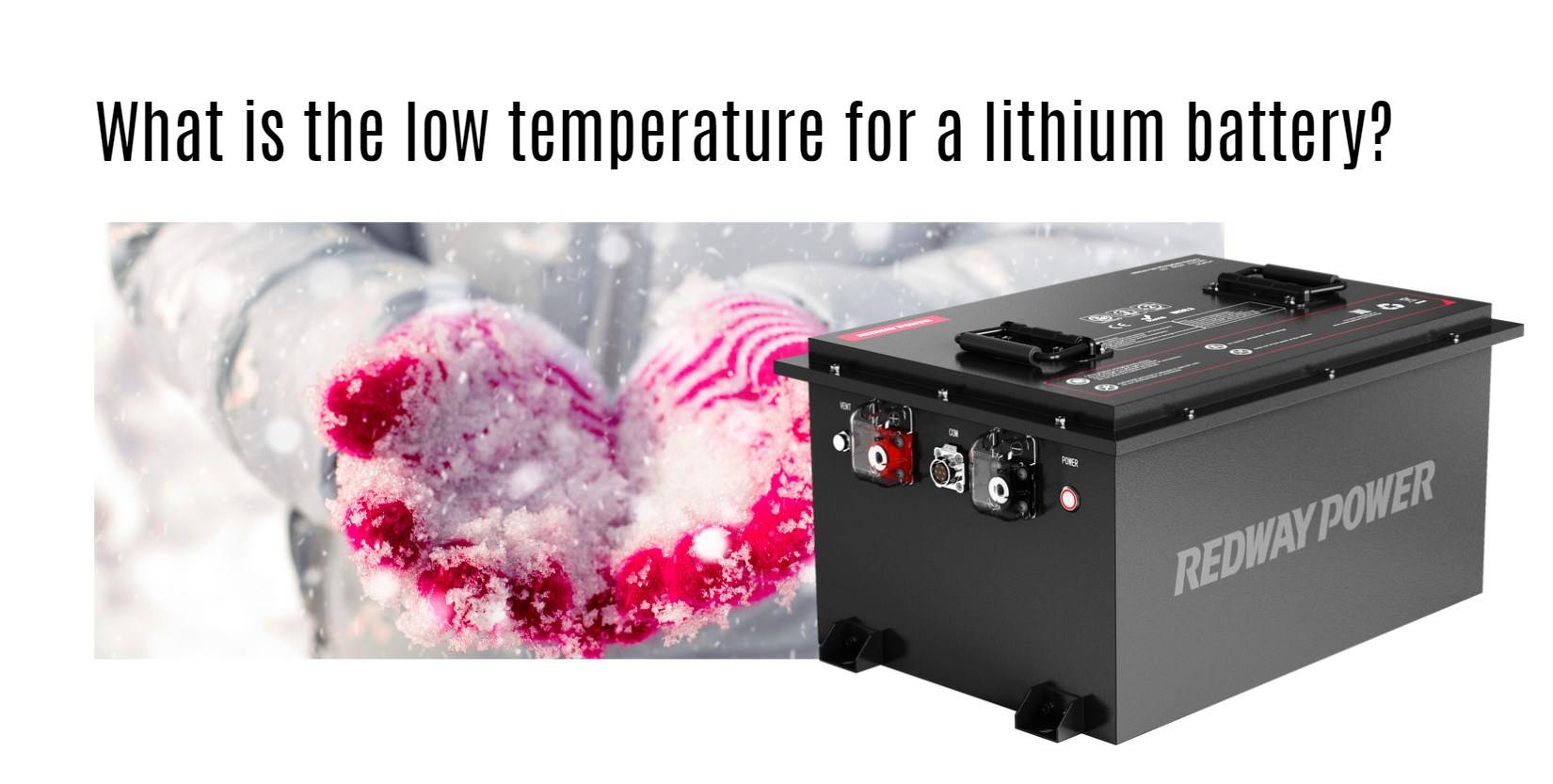Low temperatures can significantly impact the performance of lithium batteries, leading to reduced capacity and efficiency. Understanding how cold affects these batteries is crucial for optimal usage, especially in extreme conditions. The recommended operating temperature for most lithium batteries is above freezing, typically around 0°C (32°F) or higher.
How Do Low Temperatures Affect Lithium Battery Performance?
When exposed to low temperatures, lithium batteries experience a decrease in chemical reaction rates within the electrolyte. This results in reduced ion mobility, which hampers the battery’s ability to deliver power effectively. As temperatures drop, internal resistance increases, leading to diminished performance and capacity.
What Happens to Battery Capacity When Exposed to Cold?
Cold weather can lead to a significant loss of battery capacity. For instance, lithium-ion batteries may lose up to 20-30% of their rated capacity at temperatures below freezing. At extremely low temperatures, this loss can be even more pronounced, with some reports indicating a reduction of up to 80% under harsh conditions.
| Temperature (°C) | Capacity Loss (%) |
|---|---|
| 0 | 20 – 30 |
| -10 | 40 – 50 |
| -20 | 60 – 80 |
Why Is It Critical to Maintain Proper Storage Temperatures for Lithium Batteries?
Maintaining proper storage temperatures is essential because low temperatures can lead to irreversible damage. If lithium batteries are charged or used below their recommended temperature range, it can cause lithium plating on the anode, which reduces capacity and may even lead to battery failure. Proper storage helps ensure longevity and reliability.
How Do LiFePO4 Batteries Compare to Other Lithium Types in Cold Weather?
LiFePO4 batteries generally perform better than traditional lithium-ion batteries in cold conditions. They maintain a higher discharge capacity and are less affected by low temperatures. For example, at -18°C (0°F), a typical lithium-ion battery may operate at only 70% capacity, while LiFePO4 can operate closer to 85%.
| Battery Type | Capacity at -18°C (%) | Typical Use Cases |
|---|---|---|
| Lithium-Ion | ~70 | Consumer electronics |
| LiFePO4 | ~85 | Electric vehicles, solar storage |
What Are the Recommended Operating Temperature Ranges for Lithium Batteries?
Most lithium batteries operate effectively within a temperature range of -20°C to 60°C (-4°F to 140°F). However, optimal performance is typically achieved between 0°C and 45°C (32°F and 113°F). Staying within these ranges helps maximize performance and lifespan.
Can You Safely Charge Lithium Batteries in Low Temperatures?
Charging lithium batteries at low temperatures poses risks. For instance, charging below freezing (0°C or 32°F) can lead to lithium plating and permanent damage. It is recommended that charging currents be reduced significantly when temperatures fall below this threshold. Some specialized batteries are designed for cold weather charging.
What Alternatives Exist for Lithium Batteries in Cold Conditions?
For users needing reliable performance in cold weather, alternatives include:
- LiFePO4: Better suited for cold environments.
- Specialized Cold Weather Batteries: Some manufacturers offer batteries designed specifically for low-temperature operation.
Redway Battery has a great solution for those looking for reliable alternatives that perform well even in harsh conditions.
How Can You Make OEM Orders for Lithium Batteries?
When considering OEM orders for lithium batteries, partnering with a reputable manufacturer is essential. Redway Battery, with over 13 years of experience, offers high-quality solutions tailored for wholesale buyers. The process typically involves:
- Identifying specific battery needs.
- Consulting with the manufacturer about specifications.
- Placing an order based on agreed terms.
Tips for Battery Wholesale Buyers
When sourcing lithium batteries:
- Verify the manufacturer’s reputation and experience.
- Request samples before committing to bulk orders.
- Understand warranty and support options available.
Redway Battery stands out as an excellent choice for battery wholesale buyers or OEM clients seeking reliable partners in lithium battery manufacturing.
Redway Battery Expert Insight
“Understanding how temperature affects battery performance is vital for ensuring reliability and longevity. Using specialized batteries designed for cold conditions can prevent damage and enhance efficiency.”
FAQ Section
- How does cold weather affect lithium battery performance?
Cold weather slows down chemical reactions within the battery, leading to reduced capacity and increased internal resistance. - What is the lowest temperature at which you can use lithium batteries?
Lithium batteries should ideally not be used below freezing (0°C or 32°F) as this can cause significant capacity loss. - Can you charge lithium batteries in cold weather?
Charging should be done cautiously; below freezing temperatures can cause damage if not managed properly. - What types of lithium batteries perform best in cold conditions?
LiFePO4 batteries typically outperform standard lithium-ion batteries in cold environments due to their higher discharge capacity.
By understanding these aspects of lithium battery performance in low temperatures, users can make informed decisions that align with their specific needs and environmental conditions.



